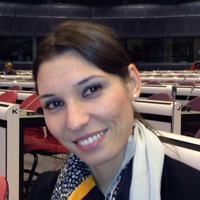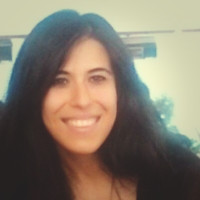Revisiting Guckenberger: Past, Present, and Future of the ADA
**This event is open to the entire Boston University community, area schools, and the general public**
Time: 1 to 2:30 pm; Date: February 14th; Location: Barristers Hall (First floor @ BU Law)

Event description & details…
Please join BUDLAA and EdLaw for a lunchtime lecture celebrating the 30th anniversary of the Americans with Disabilities Act. Professor Peter Blanck of Syracuse University will speak about the development of the ADA, the law’s present challenges and successes, and where there is still room to grow in the realm of higher education and the legal profession. Accessible and allergy friendly lunch will be served!
News
BBI International Fellow Dr. Delia Ferri awarded prestigious European Research Council (ERC) grant worth 2 million euro

In December 2019, Dr Delia Ferri, Lecturer at Maynooth University and International Fellow at the BBI, has been awarded a prominent European Research Council (ERC) Consolidator grant of €2 million to undertake research examining the extent to which EU Law protects the rights of persons with disabilities to fully participate in cultural endeavours.
New Space Promotes Synergy Between Burton Blatt Institute and College of Law
As a premier disability research and public policy institute whose work is tied to American civil rights laws, the Burton Blatt Institute’s new headquarters in Dineen Hall feels like home.
The Burton Blatt Institute (BBI) has moved into new headquarters in the College of Law’s Dineen Hall. BBI Chairman and University Professor Peter Blanck says the renovated space dovetails with the Institute’s mission to advance the civic, economic and social participation of persons with disabilities.
From ‘Justice for Jenny’ to Justice for All: Burton Blatt Institute Redefines ‘Supported Decision Making’
Syracuse University News Original Story
Think about all the decisions you make in your life. From where you work, to what you eat, to whom you associate with, to where you live, to politicians you vote for—human lives are ruled by myriad decisions that people, for the most part, make for themselves. Now, imagine someone else making those important life decisions for you. How would it feel to not be in the driver’s seat of your own life? Would it make you feel out of control, anxious or even helpless? Continue Reading
BBI Chairman Blanck to give Keynote Address at International Conference on Building an Inclusive Society through Accessibility at Maynooth University in Ireland
Burton Blatt Institute (BBI) Chairman and University Professor Peter Blanck will speak at the Symposium hosted by the Assisted Living & Learning (ALL) Institute and the Department of Law on November 21, 2019. The event will take place at National University of Ireland Maynooth’s North Campus in the Phoenix Boardroom. Blanck will deliver the keynote presentation on Building an Inclusive Society through Accessibility.
Continue ReadingVote for BBI’s Jason Harris for the Unicorn Children’s Foundation Community Inclusion Awards
Jason Harris Program Coordinator at the Burton Blatt Institute has been nominated as Media Influencer and Community Choice Award from the Unicorn Children’s Foundation Community Inclusion Awards. Harris started Jason’s Connection an online platform and Facebook page that looks at disability as an identity and part of the fabric of humanity. The Facebook page reaches around 300,000. Vote for Jason in the Community Choice Award daily until November 15th
Book Reviews of Heavy Laden: Union Veterans, Psychological Illness, and Suicide (2018), by BBI colleagues Larry Logue & Peter Blanck
October 29, 2019
“Veterans of the Civil War were perhaps the first to draw attention to the possible psychological consequences of combat. At the time, veterans with psychological problems, including criminality, alcoholism and addiction, violent behavior, and suicide were attributed to “nervous trouble”, “nostalgia”, “soldier’s heart”, and other vaguely defined conditions which are now known as post-traumatic stress disorder.”
BBI welcomes Dr. Fatma Altunkol Wise as postdoctoral researcher

Dr. Fatma Altunkol Wise is a recent immigrant to the US. She is originally from Adana, Turkey, where she received her Ph.D. in Psychological Counseling and Guidance from Cukurova University.
She began her career as a guidance counselor in public schools in southeastern Turkey working with highly marginalized populations. She then worked as a lecturer and Research Associate at Gaziantep University, delivering courses on subjects such as Personality Theories, Developmental Psychology, Social Psychology, Measurement and Evaluation in Education and supervised undergraduate and graduate students. Continue Reading
BBI Chat Alum and his mom featured on local News channels celebrating World Cerebral Palsy Day on October 6
Cora True-Frost, Associate Professor at Syracuse University College of Law, was featured on Channel 9 new, Localsyr.com. “World Cerebral Palsy Day is Sunday” and also on local radio station, WAER News “CNYers of All Abilities Encouraged to Get Outside as Syracuse Celebrates World Cerebral Palsy Day” Continue Reading
BBI Chairman, Peter Blanck Comments on US Supreme Court’s Refusal to Hear Web Access Case
Peter Blanck, Chairman of the Burton Blatt Institute at Syracuse University, was quoted on ADA and the internet in the OneZero October 10, 2019 article “A Case Against Domino’s Reveals a Slice of the Internet’s Accessibility Issues.” The pizza giant is matched against a blind customer advocating for a better digital world. Continue Reading